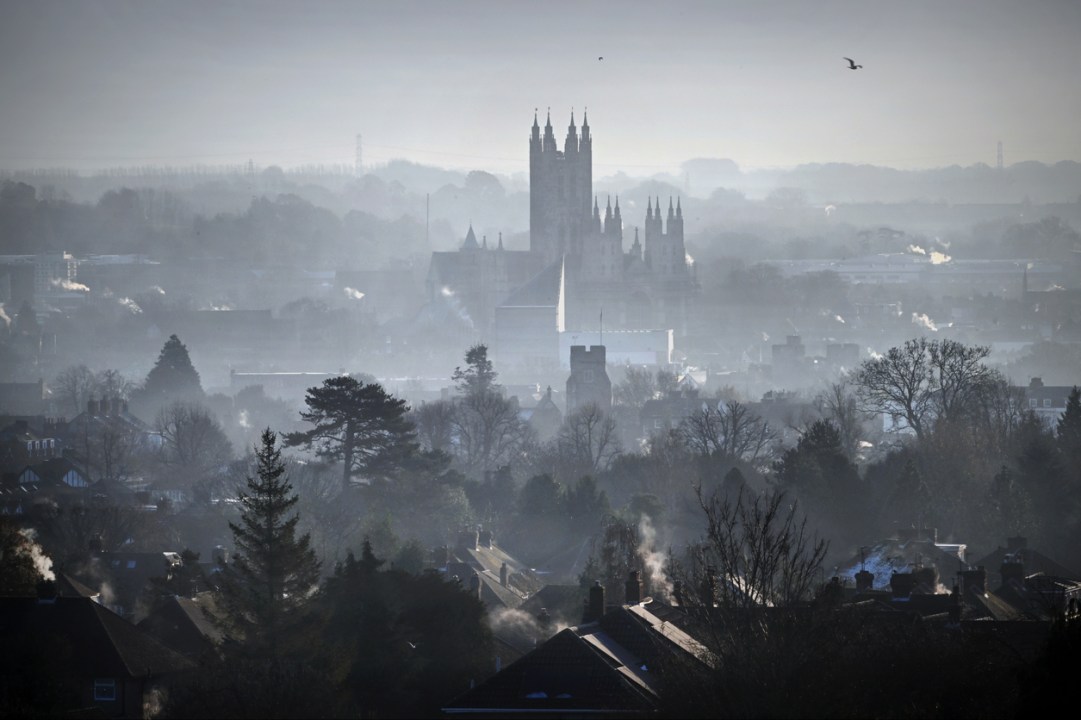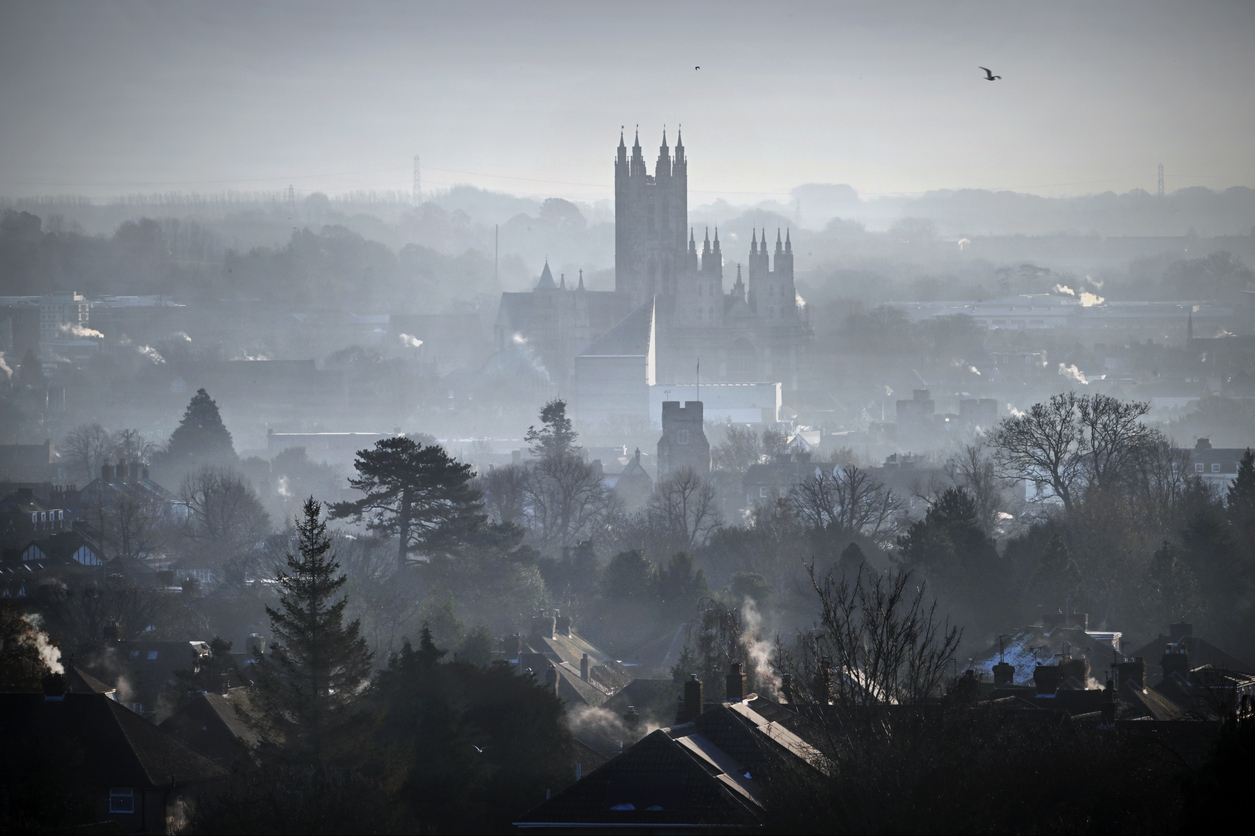War is raging over Canterbury’s future. Only two Labour councillors are left in the whole of Kent, in the north and south of the city, compared to the 57 Reform councillors who now control the county. Reform entirely replaced the Tories, who were left with just five councillors.
Canterbury’s tale is one of general decline. The lucrative parties of French schoolchildren and day-trippers have largely gone, partly because Ashford International, the Kent stop of the Eurostar, was shut and never reopened after Covid. The local economy has suffered as a result. The remaining businesses are coarsening the appearance of a city which is as important to the Anglican communion as Rome is to the Catholic Church. Some residents deplore the changing appearance of the commercial centre. ‘It’s like a second-class Las Vegas,’ moaned one ex-councillor.
The firms under fire include CJ’s Phone and Vapes, which sells second hand mobiles and small bags with cannabis leaves printed on them. Buttermarket Square, opposite the Christchurch Gate, has a ‘Cool Britannia’ gift shop, which recently replaced an American candy store. There is also a knock-off Harry Potter merch shop called ‘House of Secrets’ on a site that is owned by the cathedral. Rather than finding a more suitable tenant, the cathedral’s administrators simply accepted the highest bid, at least according to one person privy to the decision. The crime rate in Canterbury is nearly 50 per cent higher than the national average, and there are outlying estates which one local described as ‘a bit stabby’.
On a Saturday afternoon, the town looks busy. When I visited a few months ago the Lib Dems were out in force to protest. A group of canvassers told me that the Conservative council had squandered money on under-used car parks and costly arts centres. They managed to double the number of councillors so that now there are 12 Lib Dems, but nothing compared to the Faragist wave that has crashed over Kent.
Parts of Canterbury look scruffy and neglected; three businesses had recently closed. The former premises of Thomas Cook, Debenhams and the department store Nasons were visibly deteriorating. Empty shop doorways become dustbins for passers-by or shelters for vagrants to stash their blankets and pillows. Mildew spreads across untreated plaster and brickwork. Door frames crack and splinter, unmaintained. A cluster of failed businesses creates a pocket of dereliction which is bound to deter future investors. One building, Tudor at least in appearance, had MDF boards drilled over the windows.
Few cops were visible in the city centre. But what does that indicate? A happy, peaceful community or a no-go zone where authority fears to tread? I watched as a quartet of teenage boys reported an attempted theft to a solitary copper. ‘He wore a blue cap,’ said one of the lads. ‘And I don’t mean to be racist but he was black.’ His friends burst out laughing at this absurdity.
At the cathedral, the entrance fee was £19.50 (although no charge is levied on Christians who want to pray in private). Various sections of the building were being repaired and the overall view was marred by scaffolding rigs and mechanical lifts. Some of the spruced-up stonework is brand new, but elsewhere the masonry seems sad and haggard. Many original carvings have been worn smooth by centuries of wind and rain.
The poor wreck looks like a crippled old man being worked on by medics who know his full health will never be restored. The gift shop is a different story. Beautifully lit, it brims with luxury knick-knacks arranged on open shelves that invite the visitor to reach out and inspect the goods. I bought a cathedral baseball cap to make up for lying about my faith when I snuck in for free.
As it gets dark, the beggars appear, seeking alms from weary shoppers. In the rain, I spoke to Ginger, an articulate vagrant aged 50, whose sleeping bag had been pinched. He sheltered beneath a broken umbrella donated by a sympathetic local. ‘I bought that sleeping bag for £68 in Brighton,’ he told me. ‘It was a Vango Zenith 75.’ I asked him what kind of person would steal from the homeless. ‘Other homeless people,’ he said. ‘They’re scumbags.’
He lacked a bed for the night and I suggested the Salvation Army, which occupies a building near the high street. ‘They’re not much good,’ he said, stoically. He then apologised for the depths to which he had sunk and gave me the impression he wanted my absolution. ‘Forgive me,’ he said. ‘Would you treat me to a brandy in a pub?’ I told him my train was due but I handed him enough cash to buy a litre of hard liquor. It would do him good.









Comments